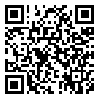
Middle Eastern Journal of Disability Studies
Middle Eastern Journal of Disability Studies

1- Imam Ali University, Tehran
2- Imam Javad University Yazd
2- Imam Javad University Yazd
Abstract: (897 Views)
Background And Purpose: One Of The Moments Of Life For Most Iranian Boys In Their Youth Is Military Service. In The Service Of Soldiers, New Tasks Are Assigned To Soldiers, And People With High Self-Efficacy Show More Perseverance Than People With Low Self-Efficacy. Considering That Soldiers Face Many Challenges In Military Service, They May Suffer From Depression And Anxiety More, To Prevent The Occurrence Of Depression And Anxiety, It Is Necessary To Increase The Level Of Psychological Well-Being In Them. In Order To Increase Self-Efficacy And Psychological Well-Being, There Are Three Treatment Methods, Emotion-Oriented, Which Aims To Achieve And Then Reprocess Specific Emotional Responses, Cognitive Behavioral Therapy, Which Aims To Create A Link Between Thoughts, Feelings And Actions, And Imagotherapy, Which Aims To Improve The Mental State And People's Physicality Was Considered Using Mental Imagery. Therefore, The Aim Of The Present Study Was To Compare The Effectiveness Of Emotional Therapy, Cognitive Behavioral Therapy And Imagotherapy On Self-Efficacy And Psychological Well-Being Of Married Soldiers.
Research Method: The Present Study Was A Semi-Experimental Type With A Multi-Group Pre-Test-Post-Test Design With Follow-Up And The Selection Of A Control Group. The Statistical Population Of The Research Included All Married Soldiers Of One Of The Barracks Of The Tehran Armed Forces In 1402. A Number Of 60 Qualified Volunteer Soldiers Were Included In The Study With Available Sampling Method And Were Divided Into Four Groups Of 15 (Three Experimental Groups And One Control Group). The First Experimental Group Received Emotional Therapy, The Second Experimental Group Received Cognitive Therapy. Behavioral And The Third Experimental Group Received Imago-Based Therapy In Eight 50-Minute Sessions; But No Intervention Was Provided For The Control Group. The Tools Of This Research Were The General Self-Efficacy Questionnaire Of Sherer Et Al. (1982) And The Psychological Well-Being Of Rief (1989). Sherer Et Al. (1982) Cronbach's Alpha Of This General Self-Efficacy Questionnaire Was 0.86 And Juarez And Contreraz (2008) The Convergent And Discriminant Validity Of The Tool Through The Correlations Obtained From This Scale With The Situational Personality Questionnaire For Efficacy (0.353) And They Obtained Confidence (0.364). Reif Et Al. Obtained The Retest Reliability Of Psychological Well-Being Questionnaire Sub-Scales Between 0.81 And 0.85 And Bayani Et Al. And Rosenberg's Self-Esteem Questionnaire Obtained 0.47, 0.58 And 0.46 Respectively.
Findings: The results of the research showed that in the post-test and follow-up phase, emotion-oriented, cognitive-behavioral and imagotherapy training had a significant effect on the self-efficacy and psychological well-being of married soldiers. In both stages, significant differences were observed between the control group and the intervention groups (emotional, cognitive-behavioral, and imagotherapy) (P<0.01). Also, in the psychological well-being variable, significant differences were observed between the imago therapy and cognitive behavioral groups in the post-test and follow-up (P<0.01). The data was analyzed using the analysis of variance method with repeated measurements and the Bonferroni post hoc test at a significance level of 0.05 by Spss-24 software.
Conclusion: The findings show that emotion-oriented, cognitive-behavioral and imagotherapy trainings are effective tools for improving self-efficacy and psychological well-being, and the results of this research emphasize the importance of paying attention to the psychological needs of married soldiers and providing appropriate training to improve the quality of life and well-being. It has them.
Keywords: Self-Efficacy, Psychological Well-Being, Emotionally Focused Therapy, Cognitive Behavioral Therapy, Imago Therapy
Type of Study: Original Research Article |
Subject:
Psychology
Send email to the article author
| Rights and permissions | |
 |
This work is licensed under a Creative Commons Attribution-NonCommercial 4.0 International License. |


